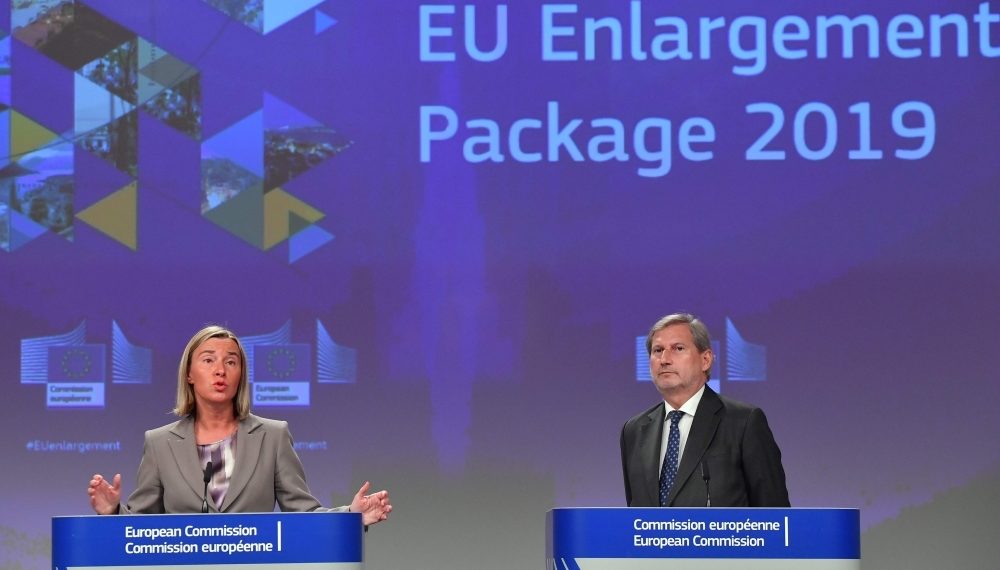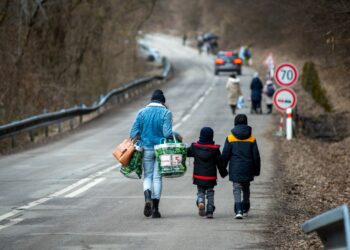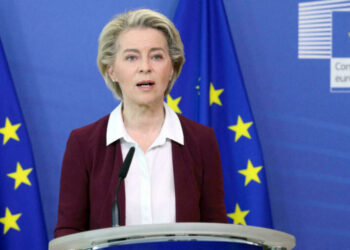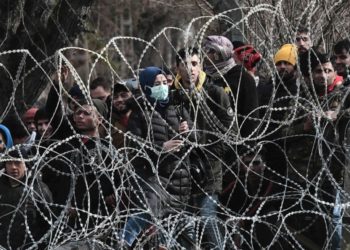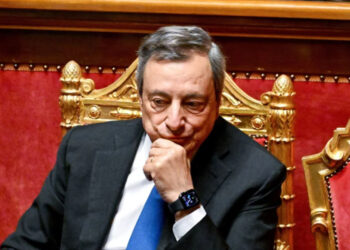An old saying in politics is that if you can obtain unanimous consent, you can make the sun rise in the west. Nowhere does this seem more accurate than in the Balkans, especially during the lurching accession negotiations with the European Union. The politicians in Bosnia and Herzegovina, Serbia, Montenegro, North Macedonia, Kosovo, and Albania, the people they govern, and the E.U. powers overseeing the process can’t agree on the right time frame or even the project’s fundamental feasibility.
The western Balkan nations aren’t going to satisfy E.U. demands anytime soon, nor are they going to find a panacea for all their economic, social, and political problems once they do, as Croatia’s experience shows.
Serbia is near the front of the pack when it comes to accession. It was granted candidate status in March 2012 and began formal negotiations two years later. However, tense relations with Kosovo will problematize its entry into the E.U., and possibly delay it beyond the recently established target date of 2025.
Any number of unforeseen events could derail the process. It has already happened. Moderate Kosovo-Serb politician Oliver Ivanovic was gunned down outside his office in North Mitrovica last year. He took six bullets for not toeing a harder Serbian line (for instance, he had voiced support for an independent Kosovo and made statements opposing organized crime). The whole incident is what the E.U. doesn’t want to deal with and what it may never be able to control.
EU Enlargement
Exemplary of the E.U.’s attitude about the Balkans is the statement by Johannes Hahn, commissioner for E.U. policy on enlargement and the E.U.’s eastern and southern neighbors. Hahn said it was important to “export stability to the region rather than importing instability to the E.U.”
The thing with Serbia, Kosovo, and the E.U. is that any agreement involving a land swap or even, who knows, one day, recognition of Kosovo as an independent state, is like selling the soul of Serbia. And why should the Serbs do that?
Good meeting w/Presid @avucic, discussing accession process of #Serbia & #enlargement strategy. Further rule of law reforms+dialogue w/ #Kosovo crucial. Internal dialogue on Kosovo shows leadership+courage from those caring today f. tomorrow’s better future of #Serbia+its people pic.twitter.com/jpMH53VsXW
— Johannes Hahn (@JHahnEU) January 12, 2018
Many Serbs believe there are deep historical and “spiritual” connections to Kosovo, and these cannot be easily cast aside because of pressures from European bureaucrats or because of the carrot of economic advancement. Serbian Russophilia, or at least cultural, religious, and linguistic ties to “big brother Russia” rather than to western Europe, is another reason for resistance to a rapprochement with the E.U.
Serbian Nationalism
On the other hand, conditions placed on Serbia for E.U. membership might have some positive consequences. Former deputy prime minister of Serbia and convicted war criminal, Vojislav Seselj, is still sitting as a deputy in the Serbian parliament despite a law prohibiting ministers from serving if sentenced to a prison term of six months or more.
Adherence to the rule of law is a cornerstone of E.U. admission, so the Seselj situation is a test case for Serbian officials to comply with the spirit of E.U. demands on that front. The fact it hasn’t happened yet signals divisions in Serbia about the E.U. process and about the country’s history itself.
Serbian nationalism, which led to situations like Seselj’s, isn’t going to disappear just because the E.U. wants it to, nor can the E.U. ever regulate it at all levels of the social fabric.
For example, in November last year, the son of Bosnian-Serb general Ratko Mladic called his father in prison, who is serving a life sentence for war crimes and genocide, during a morning show on Serbian television. This was to the applause of the audience, which included Seselj. Mladic’s son put the phone on speaker, and Mladic told Seselj to lose some weight and reminisced about their chess games while locked up. The fact the call took place on a private station is a kind of flipping the bird to the E.U. for its expectations of a free and open media in Serbia (as opposed to a state-run one). If the E.U. wants a free press, well here it is.
Ethnic and Racial Tolerance
Serbia is hardly the only example of western Balkan intransigence on compliance with E.U. requirements or its general spirit of ethnic and racial tolerance.
Neighboring Bosnia and Herzegovina is a potential E.U. candidate and, along with Kosovo, a longshot for admission at present. The country’s separation into Serbian and Muslim/Croatian sectors essentially entrenches ethnic division and leads to strongmen like Serbian Milorad Dodik emerging and causing political discord.
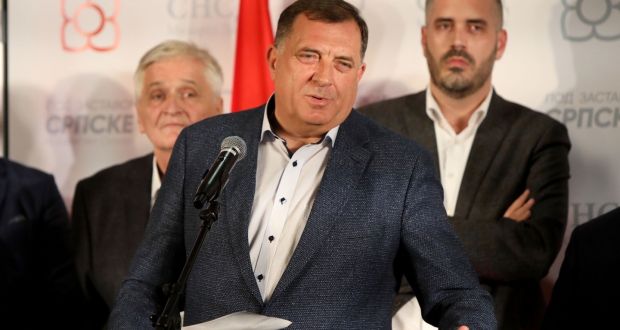
The Serbs aren’t the only hardliners in Bosnia. In April last year, supporters of convicted war criminal Atif Dudakovic protested his arrest in the streets. The Muslim general was supported by the minister of veteran affairs in the Sarajevo district, Muharem Fiso, who said, “After an honorable battle, we have lived to see the day when we must defend the honor of our generals.” We have heard all this before. The very same words could be put in the mouths of supporters of Croatian general Ante Gotovina after his arrest for his part in the Oluja offensive in 1995 (for which, by the way, he was acquitted on appeal).
There must be elements in the E.U. machine running accession talks that know none of this will ever change. And I wonder if there is anxiety within the E.U. itself, not only about the western Balkan nations in question but about the value and nature of difference as a concept.
If there is anxiety in some western Balkan nations about their people of different ethnicities and faiths forced to come together and tolerate each other, I suspect there is similar anxiety in the E.U. about “different” ideological or political attitudes about difference (and less acceptable ones from the E.U.’s perspective) that would inevitably accompany the membership of some Balkan countries.
Russia and China
There is another problem. The longer it takes for the western Balkans to join the E.U. and the more stringent the roadblocks, the more the door opens for Russia and China to gain a foothold in the region. The China Road and Bridge Corporation is in the process of building roads, bridges, and an industrial park in Serbia, as well a highway from Serbia to Montenegro’s Adriatic coast.
Montenegro, perhaps not wisely, has borrowed 809 million euros ($890 million) from China to build the first 40 kilometers. This money only covers 85 percent of the first section. The result for Montenegro is sky-rocketing debt, higher taxes, a partial freeze on public sector wages, and a national debt that is expected to reach 80 percent of GDP.
And yet, even if Montenegro and the other Balkan countries join the E.U. soon, they will find out that an exodus of their youth might follow, just as it has in Croatia. Such a population drain is hardly positive for any country moving into the future.
Disclaimer: The views and opinions expressed here are those of the author and do not necessarily reflect the editorial position of The Globe Post.

